Note: the following is a letter co-signed with colleagues at the National Employment Law Project (NELP) and submitted to Mayor Melvin Carter and St. Paul City Council Members.
* * * * * * *
October 30, 2018
Dear Mayor Carter and Council Members,
In September, the nonpartisan Citizens League’s Saint Paul Minimum Wage Study Committee released its long-awaited report on recommendations to raise St. Paul’s minimum wage. The report endorsed three paths to gradually raising wages to the $15 per hour level, with 77 percent of the committee supporting essentially the same policy that Minneapolis adopted in 2017. St. Paul is poised to adopt a $15 minimum wage, bringing a much-needed boost to working families and economic stimulus to small businesses. Yet some still say a $15 wage with a reasonable phase-in schedule will cause St. Paul to lose jobs.
We are writing this letter to you to underscore that these are nothing but scare tactics and the facts do not support these conclusions. In an October 28th opinion editorial in the St. Paul Pioneer Press, St. Paul Area Chamber of Commerce President and CEO B Kyle stated that “[t]here is much we don’t know about how a minimum wage, driven not by the markets but by government, will impact employees and businesses.” In fact, we have both sophisticated recent research and the actual experiences of other U.S. cities, including in the Midwest, to guide us. They show that significant local minimum wage increases have helped workers and raised pay with little to no discernible effect on overall employment. Instead, in city after city, researchers are finding that workers are spending their increased earnings at local businesses, helping offset the modest increases in labor costs. In Seattle, for example, where the minimum wage is currently $14 an hour for all businesses with under 500 employees and slated to increase to $15 in 2019, employment in the food and beverage industry has soared.
Just last month, economists at the University of California, Berkeley released a study examining the impact of raising wages in Chicago, Washington, D.C., Oakland, San Francisco, San Jose, and Seattle. All six cities are implementing a $15 minimum wage with the exception of Chicago, which adopted a $13 minimum wage by 2019. The study focused on the food services industry as an indicator of the effect of wage increases on minimum wage workers. Instead of finding that increased wages hurt workers at the lower end of the economic ladder, the study found no significant negative effect on jobs and that a ten percent increase in the minimum wage boosted earnings in the food services industry from 1.3 percent to 2.5 percent.
A different, widely circulated Seattle study published last year reached a conflicting conclusion that the city’s minimum wage increase had reduced the number of jobs. The study came under fire for its serious methodological errors and economists who initially took notice of it backed away from it. Just last week, the Seattle study’s authors released a follow-up study that all but retracts their earlier conclusions and shows broad benefits to workers from the city’s minimum wage increase.
Part of what has led economists to disavow the Seattle study was a cutting-edge, expansive 2017 study of all state minimum wage increases in the U.S. from 1979 to 2016 conducted by researchers at the University of Massachusetts, University College London, and the Economic Policy Institute. The researchers concluded that “on average, the number of missing jobs paying below the new minimum during the five years following implementation closely matches the excess number of jobs paying just above minimum” and that this “leaves the overall number of low-wage jobs essentially unchanged, while raising the average earnings of workers below those thresholds.” Even in the states with the largest increases, jobs were not adversely impacted.
Leaders from cities like Chicago report similar on-the-ground experiences with gradual minimum wage increases. In a recent op-ed, Chicago’s deputy mayor and the city’s commissioner of Business Affairs and Consumer Protection wrote that “[i]n Chicago, wages are up and unemployment is down” and predictions that the minimum wage would hurt city small businesses and hospitality industries had proven to be “myths.” Even after a nearly 50 percent increase in wages from 2014 to now, the Chicagoland Chamber of Commerce, which had predicted closures and job losses, found businesses optimisticabout hiring. In other words, small businesses are thriving, while providing necessary income to working families.
All this evidence shows us that raising the minimum wage can lift all boats. Minneapolis workers are also likely to be reaping the benefits of a higher minimum wage, which is on track to reach $15 by 2022. In 2016, the University of Minnesota estimated that 23 percent of Minneapolis’s workforce—73,000 workers in all—would receive an average 22 percent raise over the phase-in schedule.
If other cities’ experiences are any guide, raising the minimum wage clearly benefits both workers and businesses.
Sincerely,
Christine Owens
Executive Director, NELP
Katie Hatt
Executive Director, North Star Policy Institute
